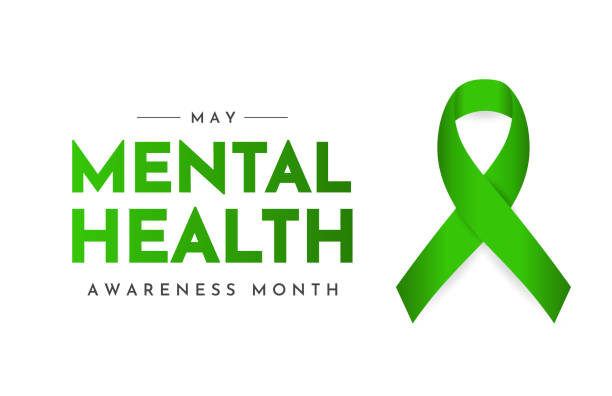Introduction Mental health is a crucial aspect of overall well-being, encompassing our emotional, psychological, cognitive, and social health. It affects our thoughts, feelings, and behaviors, shaping our daily lives, relationships, and productivity. Despite its significance, mental health often remains a neglected or stigmatized issue, hindering individuals from seeking the support they need. This essay aims to highlight the importance of mental health awareness and support, exploring its benefits, challenges, and strategies to promote well-being.
Importance of Mental Health Awareness

Raising awareness about mental health is paramount for several reasons. First, it helps to reduce stigma and promote understanding. By openly discussing mental health issues and sharing personal experiences, we can challenge misconceptions and foster empathy. It breaks down societal barriers and allows individuals to seek help without fear of judgment or isolation. Secondly, awareness promotes early identification and intervention. When people are aware of the signs and symptoms of mental health conditions, they are more likely to recognize them in themselves or others and seek support promptly. Early intervention can prevent severe mental health issues from developing and improve treatment outcomes. Furthermore, awareness raises understanding of the impact of mental health on individuals, families, and society as a whole.
Reducing Stigma and Promoting Understanding
- Mental health conditions are often misunderstood or stigmatized, leading to discrimination and reluctance to seek help.
- Promoting open discussions and sharing personal stories can challenge misconceptions and foster empathy.
- Increased awareness helps to break down societal barriers and create a more inclusive and supportive environment.
Early Identification and Intervention
- Awareness of mental health signs and symptoms allows for early recognition and prompt intervention.
- Early intervention can prevent the development of severe mental health issues and improve treatment outcomes.
- Timely access to support and resources can significantly improve an individual’s well-being and quality of life.
Impact on Individuals, Families, and Society
- Mental health has a profound impact on an individual’s overall functioning, relationships, and productivity.
- Poor mental health can also have far-reaching consequences for families and communities.
- Investing in mental health awareness and support can lead to improved individual and societal outcomes, including reduced healthcare costs and increased economic productivity.
Barriers to Mental Health Support

Despite the importance of mental health awareness, there are several barriers that prevent individuals from accessing the support they need. These barriers can be categorized into personal, systemic, and societal factors, all of which must be addressed to ensure equitable access to mental health services.
Personal Barriers
- Lack of knowledge or understanding about mental health conditions and available resources.
- Stigma, shame, or fear of being judged or discriminated against.
- Difficulty recognizing and acknowledging one’s own mental health struggles.
- Financial constraints or lack of access to affordable mental health services.
Systemic Barriers
- Insufficient funding and resources allocated to mental health services, leading to long waitlists and limited availability.
- Fragmented or complex healthcare systems that make it challenging to navigate and access appropriate care.
- Lack of integration between physical and mental health services, resulting in siloed and disjointed care.
- Shortage of trained mental health professionals, especially in underserved communities.
Societal Barriers
- Persistent stigma and discrimination towards individuals with mental health conditions.
- Cultural norms or beliefs that discourage seeking help or talking about mental health.
- Lack of mental health education and awareness in schools, workplaces, and communities.
- Inadequate policy support and legislation to protect the rights and well-being of individuals with mental health issues.
Strategies for Promoting Mental Health Awareness and Support

Addressing the barriers to mental health support requires a multifaceted approach that involves individual, community, and systemic-level interventions. Here are some key strategies to promote mental health awareness and support:
Increasing Public Education and Awareness Campaigns
- Develop public awareness campaigns that dispel myths and normalize conversations around mental health.
- Incorporate mental health education into school curriculums, empowering students to understand and address their own mental health needs.
- Collaborate with media outlets to amplify stories and perspectives that challenge mental health stigma.
Enhancing Accessibility and Affordability of Mental Health Services
- Expand insurance coverage and funding for mental health services, ensuring equitable access.
- Integrate mental healthcare into primary care settings, making it more accessible and destigmatized.
- Promote the use of telehealth and online mental health resources, especially in underserved areas.
- Offer sliding-scale payment options and free or low-cost mental health services for those in need.
Fostering Community-Based Support Networks
- Encourage the establishment of peer support groups, where individuals can share their experiences and receive emotional and practical support.
- Partner with community organizations, religious institutions, and local businesses to host mental health-focused events and workshops.
- Empower individuals to become mental health advocates and champions within their communities.
Strengthening Policy and Legislation
- Advocate for policies that protect the rights and well-being of individuals with mental health conditions, such as anti-discrimination laws and workplace accommodations.
- Push for increased investment in mental health research, infrastructure, and workforce development.
- Collaborate with policymakers to ensure that mental health is prioritized in national and local health agendas.
Promoting Workplace Mental Health Initiatives
- Implement mental health-friendly policies, such as flexible work arrangements and access to mental health resources.
- Provide training for managers and employees to recognize and support colleagues experiencing mental health challenges.
- Foster a workplace culture that destigmatizes mental health and encourages open conversations.
Leveraging Technology and Innovation
- Utilize digital tools and mobile applications to enhance access to mental health information, self-care resources, and virtual therapy.
- Explore the use of artificial intelligence and data analytics to improve early detection and personalized mental health interventions.
- Invest in the development of innovative mental health treatments and therapies, such as virtual reality, mindfulness-based approaches, and neurotechnology.
Conclusion

Mental health awareness and support are crucial for promoting individual and societal well-being. By addressing the barriers to mental health care and implementing multifaceted strategies, we can create a more inclusive, empathetic, and supportive environment where individuals feel empowered to prioritize their mental health. This essay has highlighted the importance of mental health awareness, the barriers to accessing support, and the strategies for promoting mental health well-being. Moving forward, it is essential that we all take an active role in championing mental health and ensuring that no one is left behind in the pursuit of holistic health and happiness.
wfriv.xyz